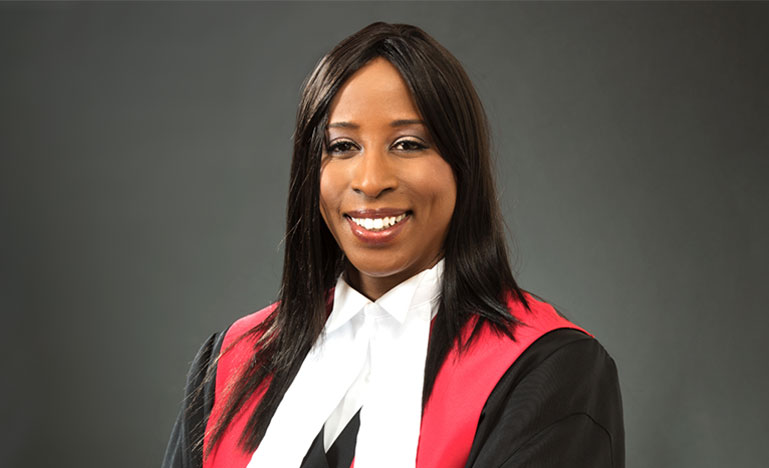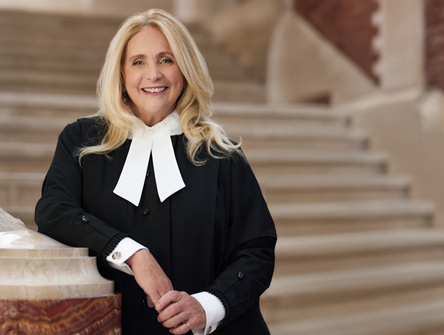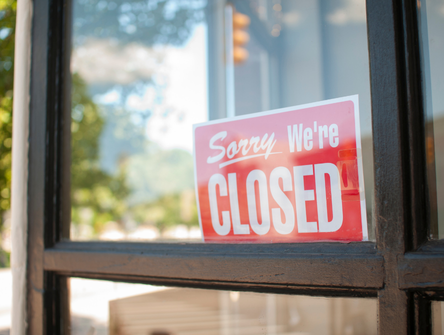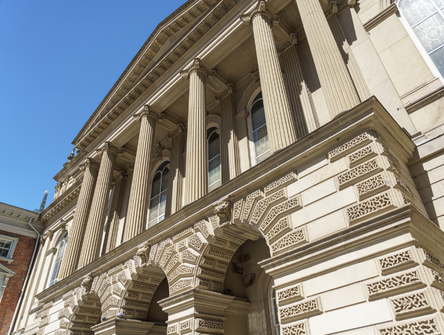A conversation with Justice Gaylene Kendell
Law Matters speaks with Justice Gaylene Kendell of Alberta's Court of Queen’s Bench, and the only Black justice in the province at this moment.

As in nature, diversity makes us stronger and in the following interview we celebrate Justice Gaylene Kendell's career from family law practitioner to justice of the Court of Queen’s Bench of Alberta, which she describes to be the culmination of her legal career. She shared with us her wisdom and insights in honour of Black History Month.
Q: Has your membership in a racially diverse group enhanced your professional experience?
Gaylene Kendell: I am going to have to answer that question with a Yes because I fully believe that my diverse background is one of the reasons why I was appointed. As you know in 2016, the federal government revamped the judicial appointment process and really put a focus on diversity, and there was an opportunity for me to answer an optional question about diversity and I truly believe it is one of the reasons that I am sitting here today.
Q: Are there challenges or obstacles for racially diverse groups in the legal profession?
GK: I think that one obstacle is a lack of mentorship. It is very important for lawyers throughout their professional careers to have people they can look up to, people that they can rely on for advice and as a sounding board. There is a need for more mentorship opportunities within the bar and the lack of mentorship is one of the largest obstacles for racially diverse groups.
Q: Did you experience any unique challenges or obstacles in your career?
GK: I have given this question quite a bit of thought and the short answer is no. I think the reason for that is that I was incredibly blessed to have mentorship – teachers, coaches, other lawyers in my firm, law partners, and lawyers from other firms in my community of Red Deer – that really just wrapped their arms around me and assisted me in developing my craft and in developing as a lawyer. I feel that I have been incredibly fortunate to have people in my life, all the way back to elementary years, teachers that encouraged me, believed in me, supported me and told me that the sky was the limit and did not in any way, shape or form, limit me. And so, when you have that village that I had throughout my life, and even now here at the Court with amazing colleagues, I do not recall experiencing any really unique obstacles or challenges, and if I did face a problem or obstacle, I had people to fall back on to be there to support me.
Q: As someone who has practised law and is now sitting on the bench, can you talk about why it is important to have diversity in the legal profession?
GK: I cannot take credit for what I am about to say because there has been a lot of discussion in the last few years about the diversity in the judiciary. I firmly believe that having diversity in the judiciary is important because it is important that all Canadians see themselves reflected on the bench and that they do not feel an “otherness” or like an outsider. And by having a diverse group of people on the bench, it is going to be more inclusive and, in my view, it is going to enhance the public’s perception of the judicial system.
Justice Minister David Lametti, who in September 2020 said, “ensuring Judges reflect the diversity of Canadian society will contribute to maintaining and increasing confidence in the administration of justice.”
That is so true. We want to have people feel that they are going to be heard. We have a broad range of people in this country with different perspectives and insights and by having people from diverse backgrounds on the bench, we all benefit from those different perspectives and insights. It is very important, and I am happy with the strides that have been taken since 2016 when the application process changed.
Chief Justice Wagner of the Supreme Court of Canada at his annual press conference in June 2020, referenced the “other,” and that “Justice should not make a person feel like an outsider or an “other” when they confront it.”
The comments of both Justices reflect the fact that our highest courts are turning their minds to racial and other diversity within the Bench and highlighting the need to take diverse experiences into consideration in their roles as decision makers.
Q: Do you have any tips or suggestions to people from diverse groups interested in pursuing an appointment to the Bench?
GK: I have one suggestion or tip – Apply! That’s it, apply. And if it is not time for you to apply, make sure that you are engaged in your community and that you are taking steps now so that you are able, when applying for a position, to establish that you have the necessary merit and temperament and to show that you have community engagement!
Q: What was your path from being a lawyer to becoming a judge?
GK: I pursued an undergraduate degree in English and Psychology because I enjoy reading and found psychology fascinating. I played to my strengths and obtained solid marks in order to get into law school. I always knew that I wanted to go to law school and that I wanted to be a family lawyer. Although I had never considered being a judge, that changed after attending a judicial swearing in ceremony and the seed was planted. And while the application was quite involved and appeared daunting, I eventually applied, and I was blessed to have a loving and supportive family and my law firm in Red Deer was my biggest cheerleader. I have been blessed to have teachers, coaches, colleagues who have and continue to inspire me.


